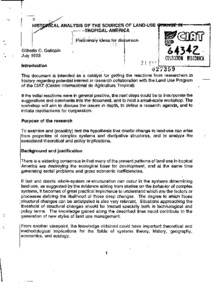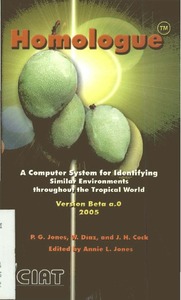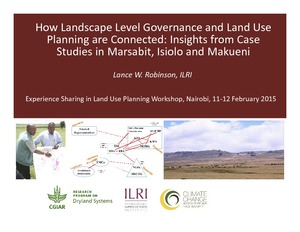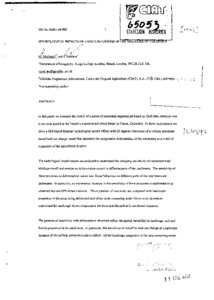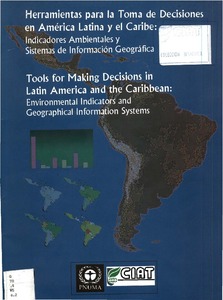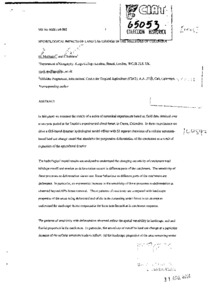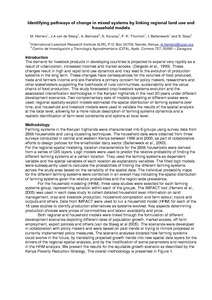utilisation des terres
AGROVOC URI:
Homologue: A computer system for identifying similar environments through the tropical world, versión Beta a.0 [CD-ROM]
Hotspots of gross emissions from the land use sector: patterns, uncertainties, and leading emission sources for the period 2000–2005 in the tropics
According to the latest report of the Intergovern- mental Panel on Climate Change (IPCC), emissions must be cut by 41–72 % below 2010 levels by 2050 for a likely chance of containing the global mean temperature increase to 2 ?C. The AFOLU sector (Agriculture, Forestry and Other Land Use) contributes roughly a quarter (? 10–12 Pg CO2 e yr?1 ) of the net anthropogenic GHG emissions mainly from de- forestation, fire, wood harvesting, and agricultural emissions including croplands, paddy rice, and livestock.
Household opportunity costs of protecting and developing forest lands in Son La and Hoa Binh Provinces, Vietnam
Vietnam has pilot-tested a payment for forest environmental services (PFES) program in an effort to restore and protect forest areas, some of which have been severely degraded by the excessive cutting of trees by small-scale farmers planting annual crops on steep, sloping lands. The pilot program implemented in southern Vietnam seems to be successful, yet the program in northern Vietnam has not produced the desired rates of planting and maintaining forest areas.
Hydrological impacts of land use change in the hillsides of Colombia
Herramientas para la toma de decisiones en América Latina y el Caribe : Indicadores ambientales y sistemas de información geográfica = Tools for making decisions in Latin America and the Caribbean: environmental indicators and geographical information ...
Hutan kita, keputusan kita: sebuah survei mengenai prinsip-prinsip untuk pengambilan keputusan di Malinau
Many people want to improve the governance of forest areas, yet what is considered good governance is not necessarily self-evident or agreed upon by everyone. This study demonstrates the diversity of views held by communities and government officials in Malinau, Indonesian Borneo about what they consider to be good governance. Each group described how they thought decisions about forests should be made, including how to represent interests, allocate land rights, distribute cash benefits from forests, share information and manage forests.

